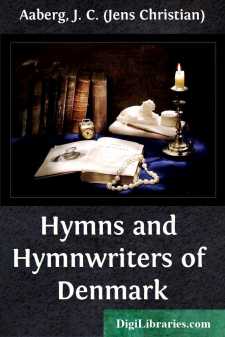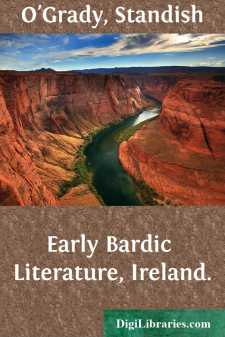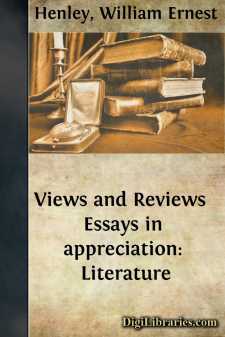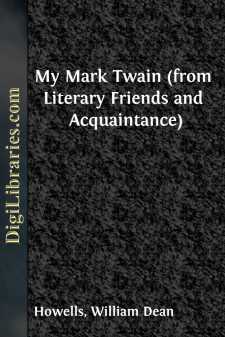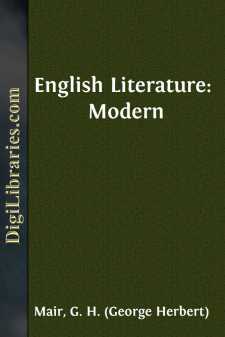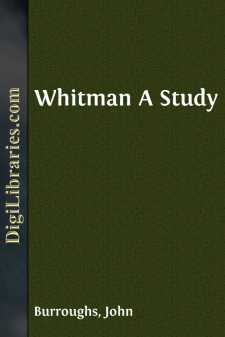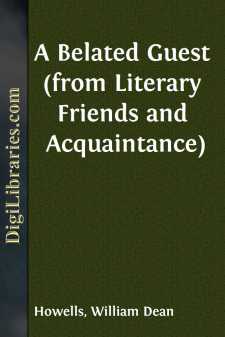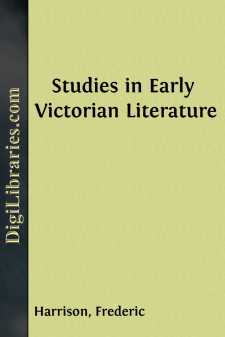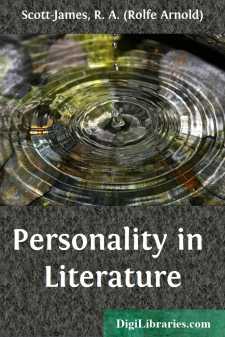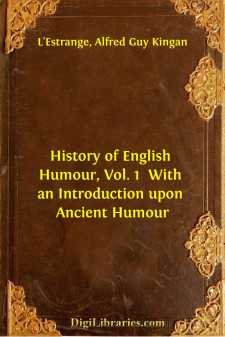Literary Criticism
- American 18
- Ancient and Classical 3
- Asian 1
- Australian & Oceanian 1
- Books & Reading 8
- Caribbean & Latin American 2
- Drama 2
- English, Irish, Scottish, Welsh 49
- European 7
- General 37
- Horror 1
- Humor 2
- Jewish 2
- Medieval 2
- Middle Eastern 3
- Poetry 7
- Renaissance 6
- Russian & Former Soviet Union 1
- Shakespeare 27
Literary Criticism Books
Sort by:
Early Danish Hymnody Danish hymnody, like that of other Protestant countries, is largely a child of the Reformation. The Northern peoples were from ancient times lovers of song. Much of their early history is preserved in poetry, and no one was more honored among them than the skjald who most skillfully presented their thoughts and deeds in song. Nor was this love of poetry lost with the transition...
more...
by:
Standish O'Grady
Scattered over the surface of every country in Europe may be found sepulchral monuments, the remains of pre-historic times and nations, and of a phase of life will civilisation which has long since passed away. No country in Europe is without its cromlechs and dolmens, huge earthen tumuli, great flagged sepulchres, and enclosures of tall pillar-stones. The men by whom these works were made, so...
more...
DICKENS A ‘Frightful Minus’ Mr. Andrew Lang is delightfully severe on those who ‘cannot read Dickens,’ but in truth it is only by accident that he is not himself of that unhappy persuasion. For Dickens the humourist he has a most uncompromising enthusiasm; for Dickens the artist in drama and romance he has as little sympathy as the most practical. Of the prose of David Copperfield and Our...
more...
It was in the little office of James T. Fields, over the bookstore of Ticknor & Fields, at 124 Tremont Street, Boston, that I first met my friend of now forty-four years, Samuel L. Clemens. Mr. Fields was then the editor of The Atlantic Monthly, and I was his proud and glad assistant, with a pretty free hand as to manuscripts, and an unmanacled command of the book-notices at the end of the...
more...
CHAPTER I THE RENAISSANCE (1) There are times in every man's experience when some sudden widening of the boundaries of his knowledge, some vision of hitherto untried and unrealized possibilities, has come and seemed to bring with it new life and the inspiration of fresh and splendid endeavour. It may be some great book read for the first time not as a book, but as a revelation; it may be the first...
more...
by:
John Burroughs
PRELIMINARY I The writing of this preliminary chapter, and the final survey and revision of my Whitman essay, I am making at a rustic house I have built at a wild place a mile or more from my home upon the river. I call this place Whitman Land, because in many ways it is typical of my poet,—an amphitheatre of precipitous rock, slightly veiled with a delicate growth of verdure, enclosing a few acres...
more...
My recollections of Bret Harte begin with the arrest, on the Atlantic shore, of that progress of his from the Pacific Slope, which, in the simple days of 1871, was like the progress of a prince, in the universal attention and interest which met and followed it. He was indeed a prince, a fairy prince in whom every lover of his novel and enchanting art felt a patriotic property, for his promise and...
more...
CHARACTERISTICS OF VICTORIAN LITERATURE That which in England is conveniently described as the Victorian Age of literature has a character of its own, at once brilliant, diverse, and complex. It is an age peculiarly difficult to label in a phrase; but its copious and versatile gifts will make it memorable in the history of modern civilisation. The Victorian Age, it is true, has no Shakespeare or...
more...
THE DEGRADATION OF BEAUTY Some time ago I found myself at an exhibition of Post-Impressionist pictures, under the ægis of an artist who was himself of that persuasion. Indeed, he was one of the exhibitors, and I was constrained to express my opinions in the form of questions. We passed before a picture which to my untutored eyes was formless, meaningless and ugly. It was by a well-known artist, and my...
more...
INTRODUCTION. PART I. ORIGIN OF HUMOUR. Pleasure in Humour—What is Laughter?—Sympathy—First Phases—Gradual Development—Emotional Phase—Laughter of Pleasure—Hostile Laughter—Is there any sense of the Ludicrous in the Lower Animals?—Samson—David—Solomon—Proverbs—Fables. Few of the blessings we enjoy are of greater value than the gift of humour. The pleasure attendant upon it...
more...


